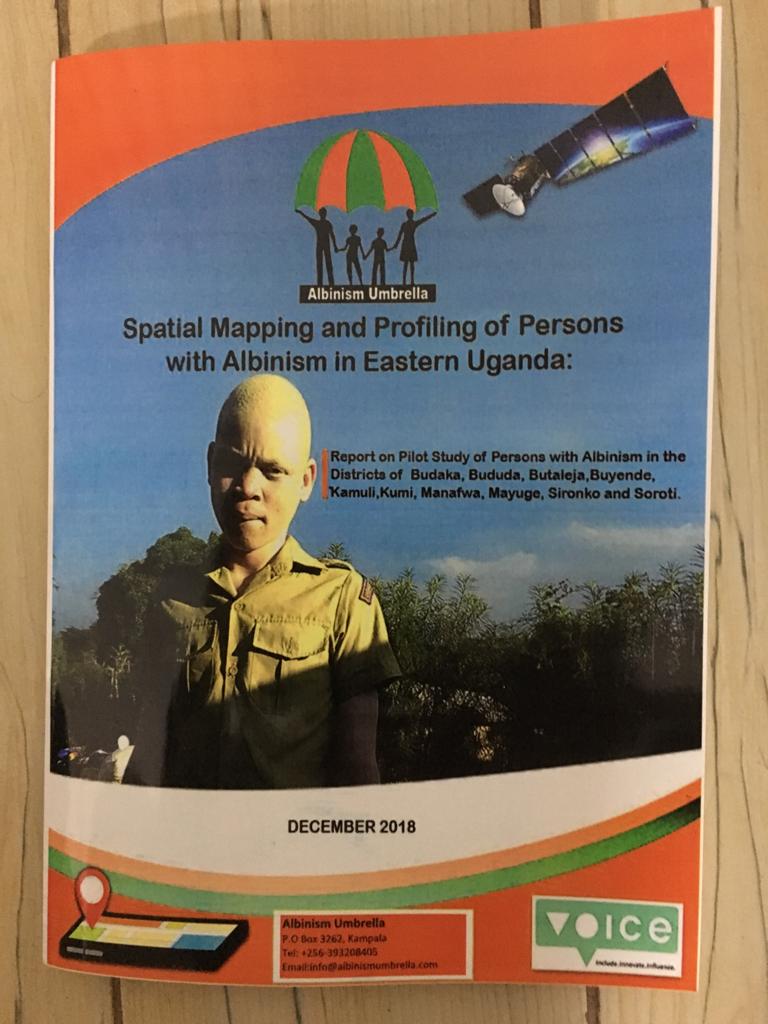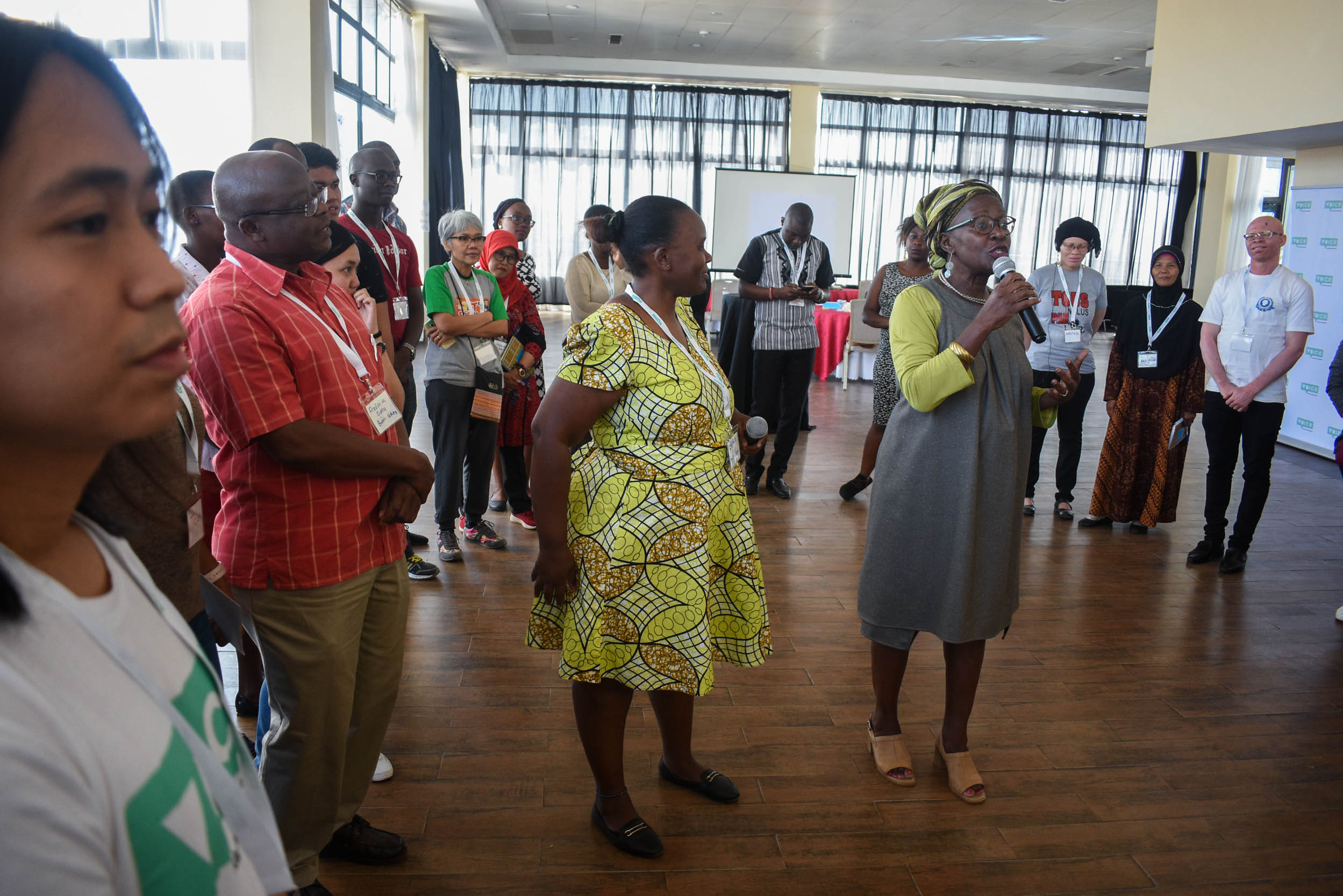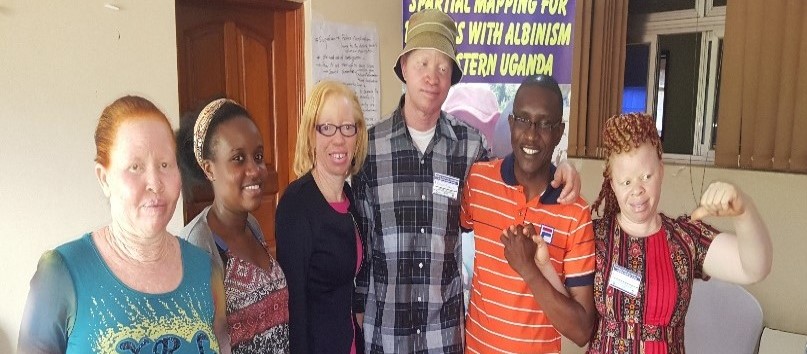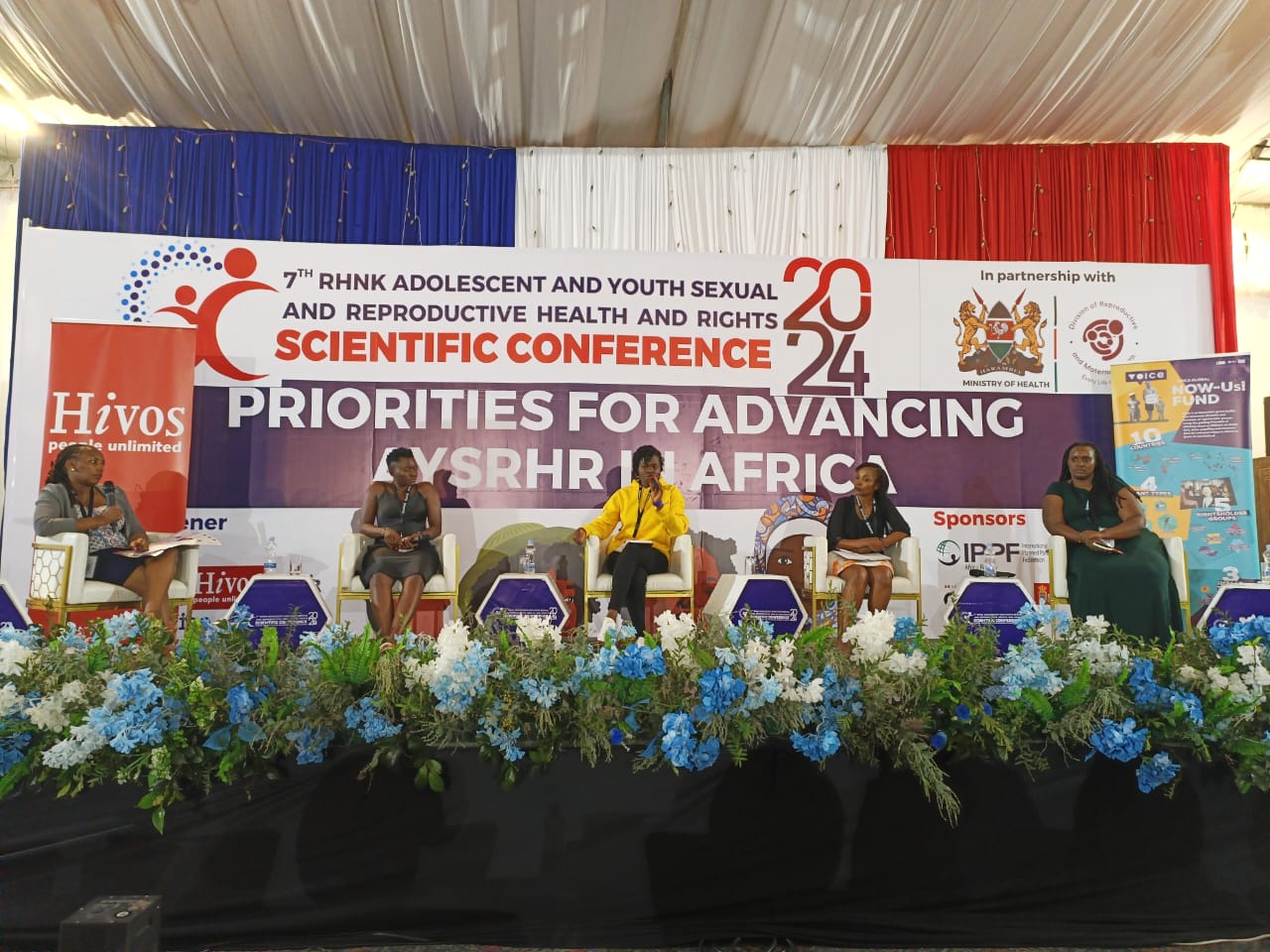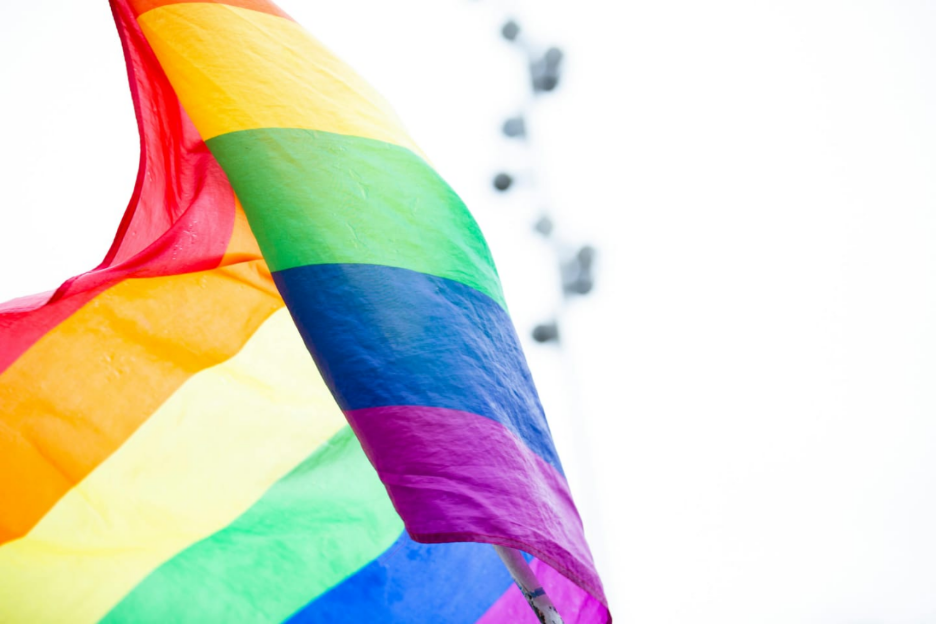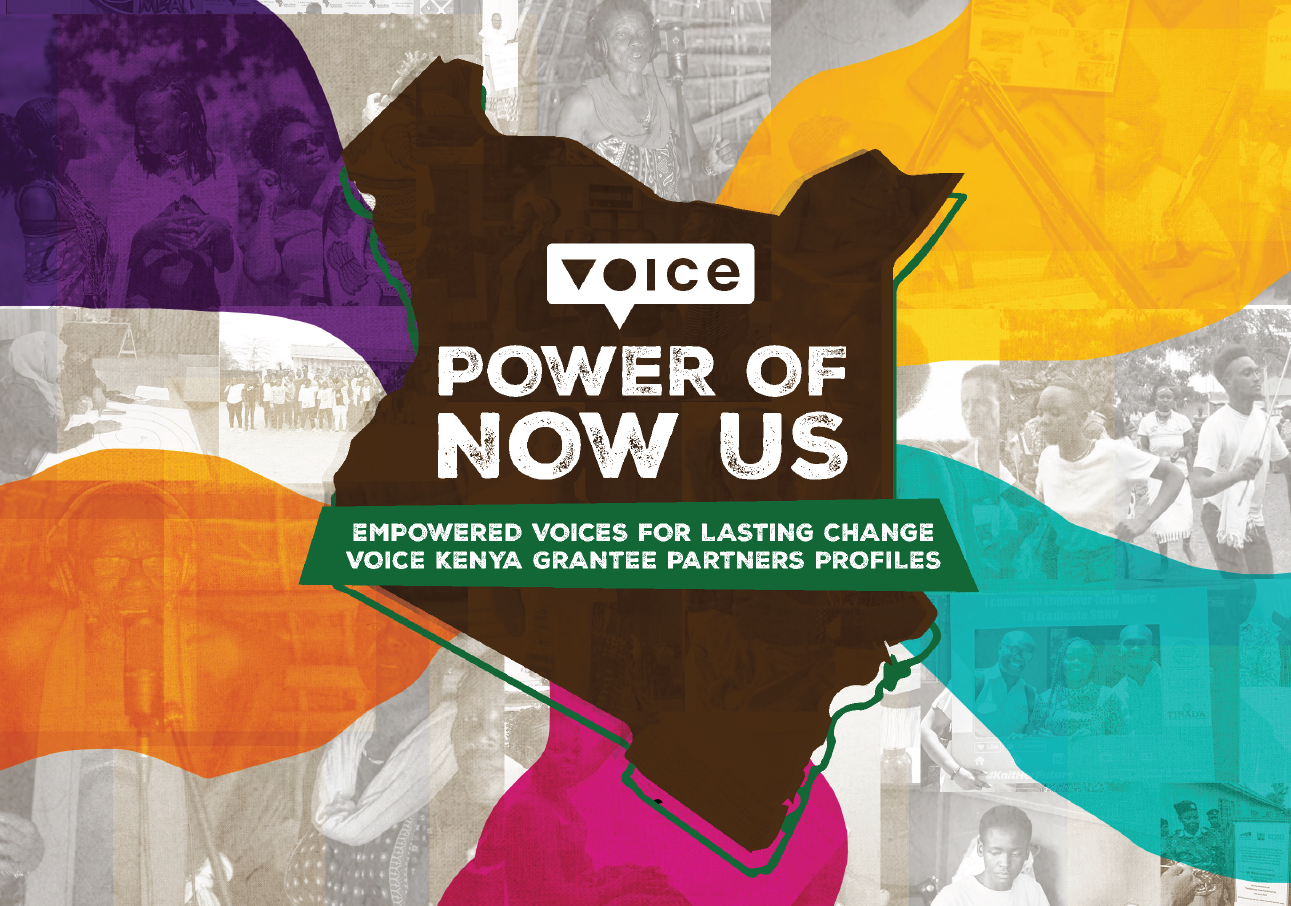Am I welcome to dance?
As a first in a new guest blog titled Voice Disruptors, we present the voice of Jane Waithera, the Executive Director of Positive Exposure-Kenya. In line with the purpose of the guest blog, Jane is challenging societal misconceptions as well as creating awareness of the issues affecting Persons with Albinism (PWAs) in Kenya.
Read her thoughts in her own words:
Imagine being the only pupil in a school of 1000+ pupils?
Imagine only managing to access sunscreen as an adult?
Well, this is my story which I tend to believe mirrors their story, the stories of PWAs who live in certain excluded margins of the society.
“It is not a great thing to give birth to a child, but to raise it, that is!”
Creative translation of a Kikuyu proverb
My biological mother left me when I was a toddler, never to come back only because I have a little less melanin than the rest. In Kenya and Africa at large, there are so many negative misconceptions about the condition coupled with stigma and discrimination. I was raised by my grandmother who had no knowledge of the care my condition required. She knew nothing about things like prescription glasses or sunscreen.
I realised at an early age that I had something to offer: to redefine albinism, to challenge the stigma associated with it and to embrace human diversity with the aim of making it better for future generations. My greatest motivation was my grandmother who with Zero knowledge on albinism endeavored to raise me and make me feel loved in a society that thought otherwise.
While I acknowledge little progress being made, it is sad that as a country that has been popular on supporting albinism, we still have men who abandon and leave their wives and children, physical attacks and killings of persons with albinism and nobody says a word. The case of Jamenya, a PWA who was killed https://nairobinews.nation.co.ke/news/albino-man-dies-after-machete-attack-for-his-body-parts went under water right after the incident.
It is important for countries to have a budget that focuses on persons with albinism. It is good to note that while a budget is important, we should also note that this does not translate to the utmost protection and promotion of the rights of persons with albinism. A budget should be holistic. I am aware of hundreds of persons with albinism from the village like me who still haven’t heard of the albinism budget and what it does. It’s high time that as a country we rethink our strategy if we are to inclusively address issues of persons with albinism holistically.
“Why are we focusing more on language than on humanity?”
Jane Waithera
We are in a country where the media will use a derogatory word because it is the grammatically correct word. We continue objectifying human beings at the expense of language (all often our media uses the term ZeruZeru to describe a PWA). If we have moved from translating words like a computer to kompyuta, shirt to shati why is it so hard to shift from using the words Zeruzeru to Watu Wenye albinism or any other humanising phrase?
Kenya has usually been used as an example because of its best practices around albinism e.g the budgetary allocation for sunscreen and eye care. However, one critical question that we need to ask is how we can budget for a group that no census accounts for?
The available data indicate that one in every 5000 people in a given population has albinism (1:5000) for Africa with some of the countries in East Africa having a ratio of 1:3000. Reasons for this high occurrence haven’t been verified. Therefore more research needs to be done to explain the frequency since the rest of the world has 1:17000.
We need to have an East African regional coordination mechanism to deal with cases of violations of rights of persons with albinism and more towards inclusivity of our diversities. There are no accurate estimates of the number of people living with the condition and little systematic research has been undertaken in Kenya to identify the full range of obstacles affecting PWAs. This arises in part because of the failure by the government and other duty bearers to make reasonable commitments to recognise and address the needs of PWAs.
In Kenya, PWAs stand out because they are considered ‘white‘ in a society that considers its community as ‘black‘. They are largely seen as being alien, incomplete and lesser beings as if they are incomplete. Is this really how it should be?
PS: Check out this blog: Claiming our space by our Innovate and Learn grantee, Albinism Umbrella that explains why profiling people with albinism is important.
Voice wishes to thank Ms. Waithera for voicing her thoughts. Ms. Waithera is an enthusiastic, dynamic, proactive and motivated human rights advocate, with over five years’ experience in various fields of the disability and leadership sector, particularly in albinism Issues. She is currently the Executive Director at Positive Exposure-Kenya, an albinism education and advocacy organisation that promotes inclusive communities that uphold the rights of persons with albinism to empowerment, equality, dignity, justice, and self-reliance, through advocacy and public awareness, economic empowerment, and education. She also runs a mentorship programme, which is an educational tool that invites students to learn about their peers living with differences.

